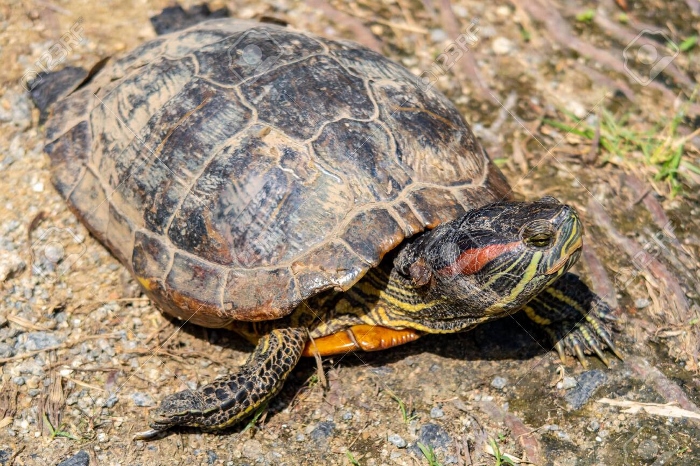Some smallholders keep exotic animals as pets, just because they are different from traditional pets. Exotic means the same as alien ~ the animal does not occur naturally in South Africa.
Provincial legislation varies for keeping exotic animals. The 2020 Nemba list of invasive species states if it is permissible to keep the species and whether a permit is required. For example, the red-eared terrapin (pictured above) requires a permit to be kept in all provinces.
The Endangered Wildlife Trust lists some of the problems that can arise:
Stress for the animal: Capturing, transporting and incorrect care can often lead to stress related-illnesses or death, as well as keeping them in enclosures or handling them constantly.
Black market trading: There is a very prosperous and thriving illegal trading business in wild animals and wild animal products. For example, the illegal reptile trade is a billion Rand industry in South Africa.
Endangering biodiversity: Removing wild animals for the illegal pet trade can jeopardise the survival of natural populations in the countries where they are indigenous.
Exotic diseases: Wild animals are sometimes the carriers of diseases which might be transmissible to humans or to indigenous animals.
Invasive species: Invasive exotic species can disrupt local ecosystems. This occurs when an exotic pet escapes or is deliberately released into an area where they do not naturally occur.
Cruelty issues: Very often a wild animal being kept as a pet becomes a nuisance or a problem for the owner. The owner then decides to release it back into nature, which is of course the nearest area which looks remotely wild enough to release the animal. Such animals can however not fend for themselves and very often they die a long and slow death by starvation. It might be killed quickly by running into a predator or a vehicle

